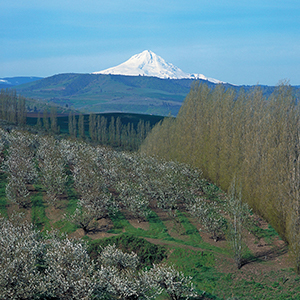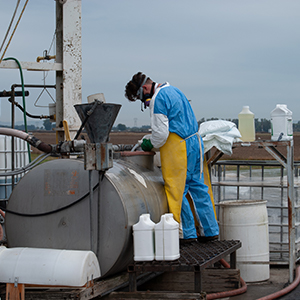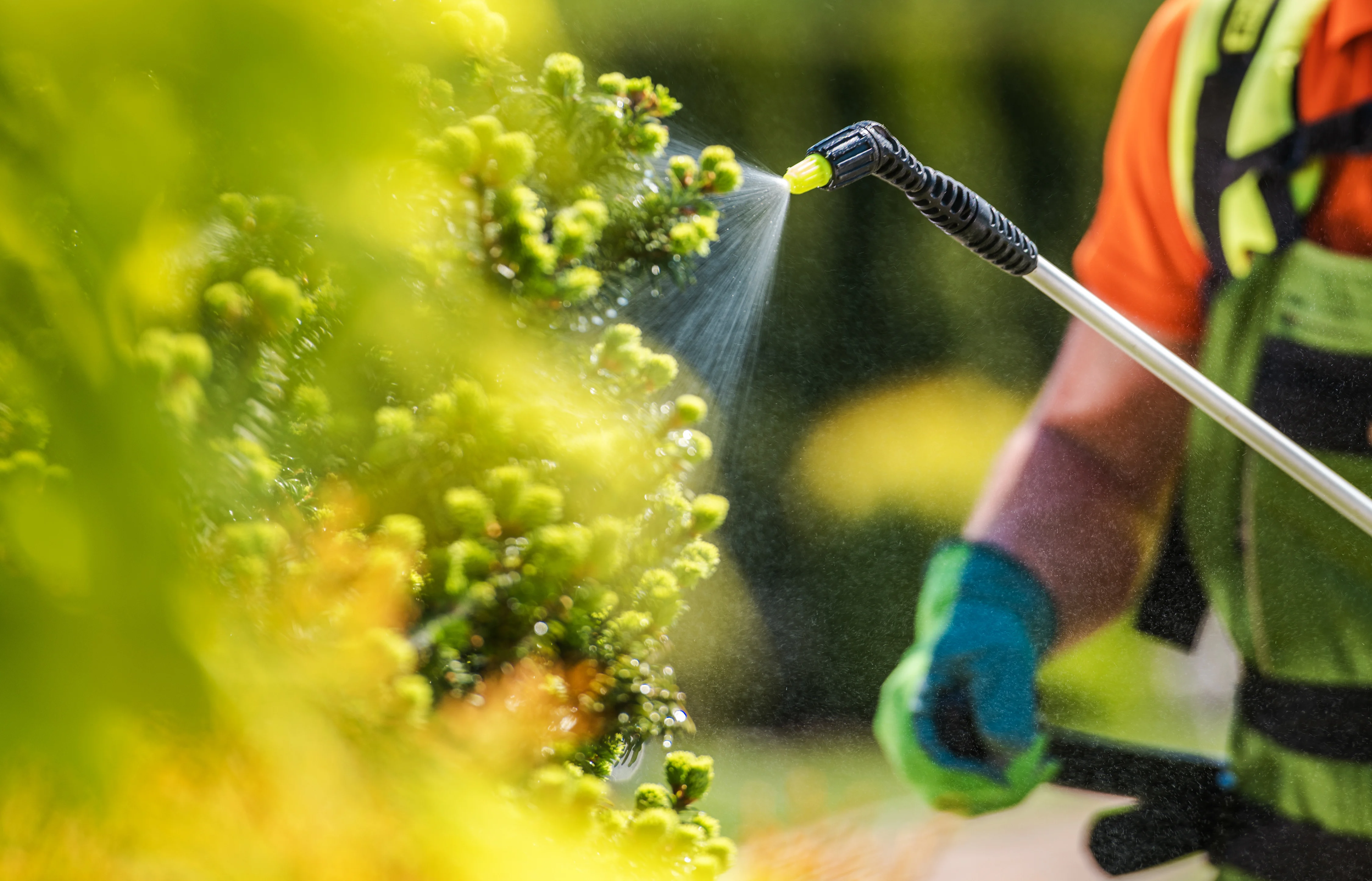;.
Online Recertification Courses
Our online recertification courses offer an opportunity for you to earn recertification credits in the comfort of your home or office when YOU need them! You can register at any time and complete them on your own schedule. These on-demand courses are available year-round (just be sure to complete by December 30th to ensure credit!). We work closely with the Oregon Department of Agriculture to ensure our content is up-to-date and relevant. Our courses and others are available online through OSU's Professional and Continuing Education (PACE).
Register Today!
Click the course titles to access the registration page.
Introduction to Pest Management: An IPM Approach
A successful pest management program includes the ability to properly identify pests, monitor populations, and evaluate control methods based on the level of need. Explore the basic themes and methods of pest management, as well as the challenges that modern pest management programs face.
$35
1 CORE Credit
FIFRA, OAR, ORS, and WPS: The ABC's of Pesticide Law in Oregon
One of the primary responsibilities of a pesticide applicator is to know, understand, and comply with federal and state regulations regarding pesticide use. Examine the federal and Oregon laws and regulations that protect you, the public, and the environment from the adverse effects of pesticides.
$35
1 CORE Credit
The Label is the Law: How to Read a Pesticide Label
The label is the law! Pesticide applicators must comply with all instructions on a pesticide label, and knowing how to read a label is paramount to responsible pesticide use. Explore the various sections on a pesticide label and understand the important language included in each section.
$35
1 CORE Credit
Getting Tough with Pests and Going Soft on Pollinators
More and more people are growing concerned about the impact of pesticides on pollinating insects, and new state and federal regulations on pesticide use around pollinators attempt to address this issue. This raises the question: Is it possible to go hard on pests and still be soft on pollinators?
$35
1 CORE Credit
Zinc Phosphide: Baiting for Belding's Ground Squirrels in Oregon
Damage caused by Belding's ground squirrels can create a significant financial burden to Oregon farmers and ranchers. This course provides training required to use Zinc Phosphide to control Belding's ground squirrels in Oregon under a Special Local Need (SLN) label (EPA SLN No. OR-130002).
$35
2 CORE Credits
Personal Protective Equipment: PPE is Your BFF
Personal Protective Equipment, or PPE, is the first line of defense in protecting the applicator from harm. Proper selection, handling, and maintenance of PPE is an essential part of that defense system. Learn about the different types of equipment that will protect you against pesticide exposure.
$35
1 CORE Credit
Planning Ahead: Your Pesticide Application Action Plan
Applying pesticides requires careful planning and strong understanding of the product, the equipment, and safety procedures. Aspects that should be considered in planning include selecting the correct product and equipment, protecting yourself and your surroundings, and proper clean up and disposal.
$35
1 CORE Credit
Pest Identification: The Cornerstone of Every Pest Management Program
As a registered pesticide applicator, understanding pests' form and function, along with their life cycle and habitat preferences, can help you develop a tactical and efficient approach to pest control.
$35
1 CORE Credit
ODA and You: Pesticide Licensing, Recordkeeping, and Compliance in Oregon
The Oregon Dept. of Agriculture (ODA) works with industries and applicators in a shared commitment to protect human health and the environment while ensuring access to pesticides for food production, structure protection, and more. This course explores ODA's licensing and certification processes.
$35
1 CORE Credit
Pesticides, Pollinators, and the Planet: Your Role as an Applicator
Environmental stewardship considers the relationship humans have with the land and the plants and animals that live there. Pesticide applicators have a responsibility to be a steward, not only to protect non-target organisms, but to maintain the health of the land they rely on for their livelihood.
$35
1 CORE Credit
Pesticide Formulations, Equipment, and Calibration: The One With All the Math
One of the most challenging aspects of application is the math involved. We’ve got you covered with this course! Learn about pesticide formulations, how to calibrate application equipment, examine the label for application rate restrictions, and practice calculating areas and application rates.
$35
1 CORE Credit
Pesticide Emergency Response Plans: Make Them Before You Need Them
Responsible use of pesticides includes having an 'action plan' in place in case something goes wrong. You need to be prepared for emergencies such as spills and fires before they happen, and know which agencies to contact if they do. This course also covers symptoms of pesticide exposure and how to administer first aid if needed.
$35
1 CORE Credit
Pesticide Transport, Storage, and Security: Methods to Reduce Risk
Security, storage, and transport are all important aspects of responsible pesticide use. Storage and transport of pesticides are when serious accidents are most likely to occur. Pesticide applicators must know the situations that increase the risk of accidents and have strategies to reduce that risk.
$35
1 CORE Credit
Other Topics?
Feel free to contact us if you have an idea for a recertification topic!













